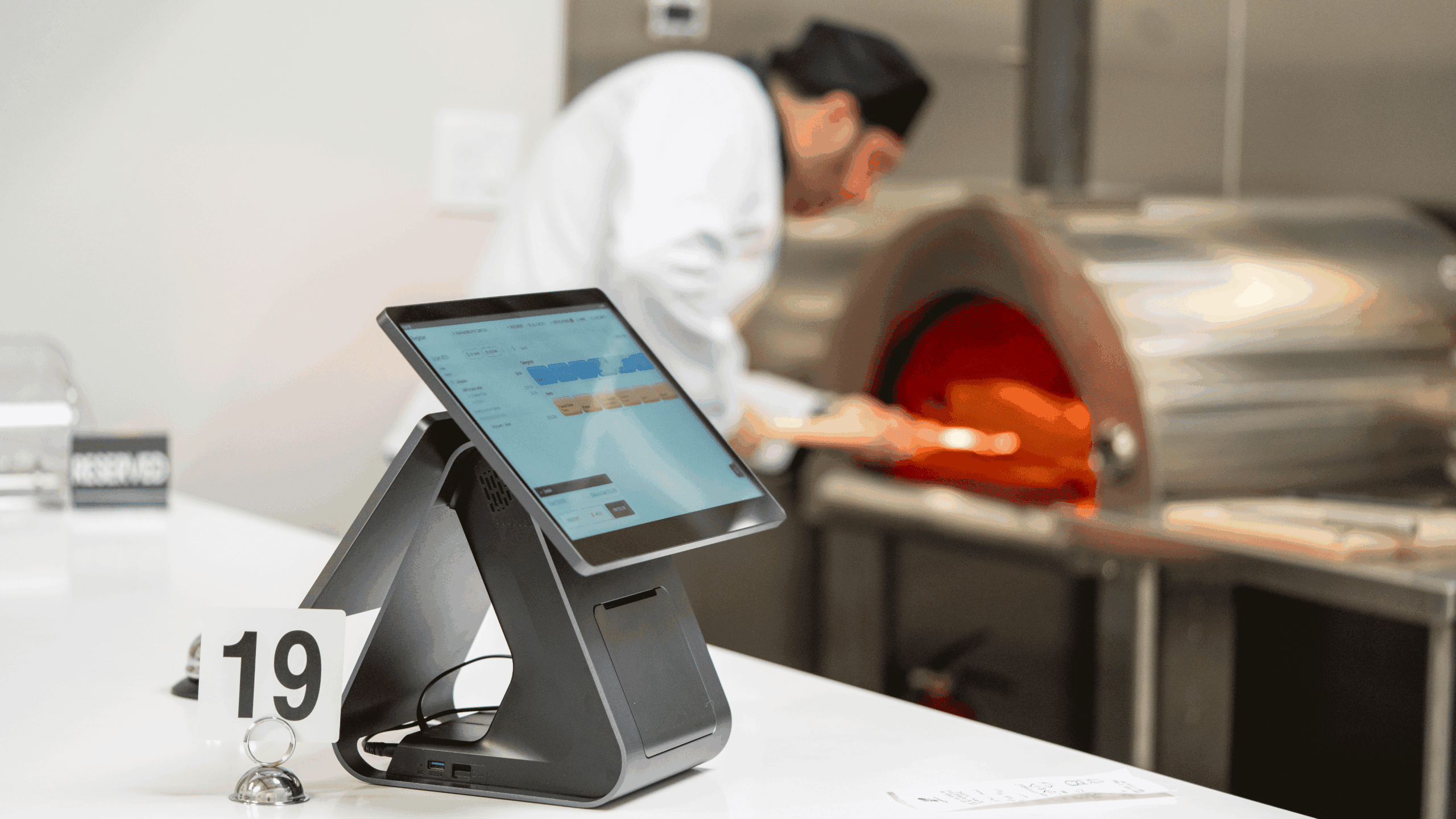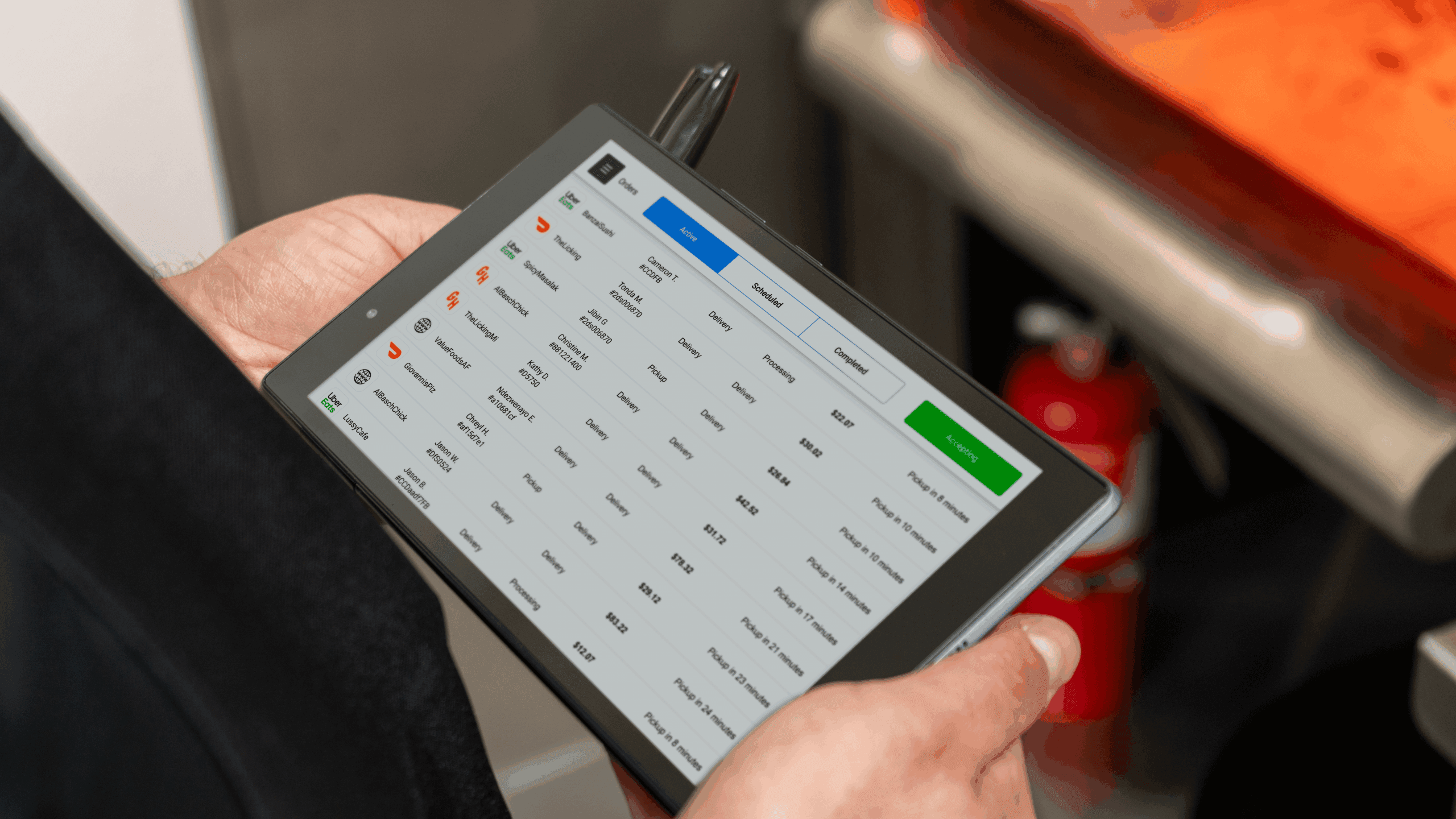- The basics of fast food restaurant management
- Setting goals and creating a plan to achieve them
- Staff management – hiring, training, and keeping your team motivated
- Handle customer complaints
- Managing the finances of a fast-food restaurant
- Keeping your kitchen organized and clean
- Bonus tips for increasing profits
Anyone who has ever run a fast food restaurant knows that it can be a challenging business. There are so many things to keep track of – from making sure the food is prepared correctly, dealing with unhappy customers, and managing the budget.
But with careful planning and organization such as the menu, staffing, and marketing, it is definitely possible to manage a successful fast food restaurant.
This blog post will discuss some of the most critical aspects of managing a fast-food restaurant. So if you’re ready to learn, keep reading!
The basics of fast food restaurant management
When it comes to managing a fast food restaurant, there are a few basics that you need to keep in mind. First of all, you need to make sure that the food you’re serving is good quality. This means using fresh ingredients and cooking the food properly.
You also need to ensure that your restaurant is clean and presentable. This includes everything from the dining area to the kitchen. Customers will not want to eat in a dirty or messy restaurant.
Another important aspect of fast-food management is customer service. You need to make sure that your staff is friendly and helpful and that they are providing good customer service. At times, this can be challenging, but it’s definitely worth the effort.
As you can see, there are many different aspects to managing a fast-food restaurant. But with careful planning and hard work, it’s possible to succeed in this field!
Here is a step-by-step guide to managing a fast food restaurant:
Plan your menu carefully.
This means considering cost, customer preferences, and the overall profitability of different items on your menu.
Staff your restaurant appropriately.
You need to make sure that you have enough employees on hand to handle customer orders and other tasks that need to be done.
Focus on customer service.
Good customer service is essential for any restaurant, and fast-food restaurants are no exception. Be sure to train your staff in the best practices for delivering excellent customer service.
Market your restaurant effectively.
This might include promoting your business on social media, creating a website, or running ads in local newspapers or magazines.
Keep your restaurant clean and presentable.
This is important for both customers and employees. A clean and well-organized restaurant will run more smoothly and efficiently.
Manage your finances carefully.
Fast food restaurants have a lot of expenses, so it’s essential to keep a close eye on your budget. Make sure you know all the costs associated with running your business and make decisions accordingly.
Stay organized and plan ahead.
There will be many moving parts in a fast-food restaurant as with any business. To keep everything running smoothly, it’s essential to stay organized and plan ahead as much as possible.
Setting goals and creating a plan to achieve them is
Setting goals and creating a solid business plan are essential to success as a fast-food restaurant manager. It would help if you were diligent in every aspect of your business, from menu planning and hiring staff to market and budgeting.
But with careful planning and determination, you can manage a successful fast food restaurant that customers love. Here are some tips to help you get started:
- Defining your goals and objectives for your restaurant, including factors such as revenue targets and customer satisfaction metrics.
- Researching and carefully planning your menu, including considering customer preferences, food costs, and profitability.
- Hiring the right staff for your restaurant, including full-time employees and part-time or seasonal workers to help during busy periods.
- Focusing on delivering excellent customer service, from greeting customers and taking orders to handle complaints and providing recommendations.
- Promoting your restaurant effectively, whether through social media marketing, print advertising, or word-of-mouth referrals.
- Keeping your restaurant clean, organized, and presentable, including conducting regular cleaning and maintenance routines.
- Offering high-quality food service at a reasonable price while carefully tracking your expenses and revenue to ensure that your business is profitable.
- Monitoring your progress and evaluating your results regularly to ensure that you are on track to reach your goals.
- Above all, staying organized and resilient in setbacks or challenges.
- Setting realistic expectations, maintaining a positive attitude, and being willing to learn from your mistakes are all essential qualities of a successful fast-food restaurant manager.
With these tips in mind, you can start setting goals and creating a plan to achieve success as a fast-food restaurant manager. Remember to stay focused and dedicated, and you’ll be well on your way.
Staff management – hiring, training, and keeping your team motivated
Your staff is at the heart of your success as a fast-food restaurant manager. Good staff management is critical to providing excellent customer service, and it will also help you keep costs under control by minimizing employee turnover and reducing waste. Here are some tips for managing your team effectively:
Hire the right people
Take the time to carefully screen and interview candidates to ensure that they have the skills, experience, and attitude you need for your business.
Provide adequate training
Whether it’s on-the-job training or formal classroom instruction, make sure that all new employees are thoroughly trained and confident in their roles before they start working on their own.
Keep your team motivated
Offer incentives, bonuses, or other rewards to employees who excel at their jobs and give them opportunities to grow and advance within your company.
Communicate effectively
Stay in close contact with your staff, and make sure that they understand your expectations and objectives for the business.
Be fair and consistent
By treating all your employees fairly and consistently, you can help minimize conflicts, improve morale, and maintain high staff productivity levels for your restaurant.
Manage performance effectively
If an employee is struggling or not performing up to your standards, take action right away by providing feedback and support and disciplinary measures when needed.
Deal with conflict promptly
If there is an issue between individual employees or between an employee and a customer, it’s essential to address the problem quickly before it escalates.
Foster teamwork
Encourage your staff to work together and support each other while also recognizing individual contributions to the success of your restaurant.
Be flexible
As a fast-food restaurant manager, you will often need to adapt quickly to unexpected situations or challenges, so it’s important to have excellent problem-solving skills and be willing to think outside the box.
Remember that your staff is human
Treat your employees with respect and kindness, and remember that they are your most valuable asset in achieving success as a fast-food restaurant manager.
With the help of these tips, you can start building and managing an effective team of staff for your fast-food restaurant. By focusing on hiring the right people, providing thorough training and support, and fostering a positive work environment, you will achieve your goals.
Handle customer complaints
Customer complaints are inevitable in any business, but how you handle them can make a big difference in preserving customer loyalty and protecting your reputation. Here are some tips for dealing with customer complaints effectively:
Listen to the customer
The first step is to listen to the complaint carefully and understand the issue from the customer’s perspective. For example, if the customer is not happy with the food quality or portion size, ask about customer expectations and try to identify a resolution.
Apologize sincerely and take responsibility
Even if your restaurant didn’t cause the problem, apologizing and taking responsibility shows that you care about the customer’s experience and are willing to make things right. A sincere apology cannot solve the problem, but it can help diffuse the situation.
Your Inbox, Your Rules!
Tailor your newsletter with the topics you're most interested in.
Offer a solution
Once you’ve listened to the complaint, try to come up with a solution that will satisfy the customer, such as a refund, coupon for a future visit, or free food item. This will help turn a negative experience into a positive one.
Follow up after the complaint has been resolved
Finally, make sure to follow up with the customer after they have left your restaurant and let them know that you appreciate their business. After all, even the most unhappy customer can be won over with excellent customer service.
By taking these steps in handling customer complaints, you can help minimize the negative impact on your business and maintain a good relationship with your customers.
Dealing with difficult situations
Difficulties are for people who can overcome them – and you are one of those people! You have the strength, courage, perseverance, and determination to succeed no matter what challenges come your way.
So when difficulties arise in your fast-food restaurant business, don’t back down – face them head-on with these tips:
Communicate effectively
The first step in handling any difficult situation is keeping calm and communicating clearly. Whether you are dealing with conflict between staff members or an angry customer, it’s important to remain composed and address the problem directly in a respectful manner.
For example, you might approach a conflict with two staff members by communicating the expectations, discussing possible solutions, and working together towards a resolution.
Be open to feedback
One of the best ways to overcome a challenge is to seek honest feedback. Listen to what your employees, customers, and other stakeholders are saying, and consider their advice when making decisions.
For example, if you are having difficulty increasing sales, ask your employees for their suggestions to improve the customer experience. By soliciting feedback, you can gain valuable insights to help you find a solution to the problem.
Be flexible and adaptable
Difficult situations are only temporary, so stay positive and don’t lose sight of your long-term goals. With the right attitude and skills, you can overcome any challenge in your path to success as a fast-food restaurant manager.
For example, if the customer complaints are related to a specific menu item or aspect of the customer experience, be open to making changes or tweaking your approach to serve your customers better.
Think outside the box
When faced with a difficult situation, it’s often helpful to think outside the box and develop creative solutions. Sometimes the best answer is not obvious at first, so it’s important to explore all options and consider different perspectives.
For example, if you struggle to find qualified employees, you might consider offering incentives or training programs to attract and retain top talent.
Remember that difficulties are only temporary, no matter what challenges you face in your fast-food restaurant business. With the right attitude and approach, you can overcome any obstacle in your path to success!.
Learn from your mistakes
Finally, remember that mistakes are inevitable – but they can also be valuable learning experiences. When difficulties arise, take the time to reflect on what went wrong and how you can prevent similar problems in the future.
By following these tips, you will be better equipped to deal with difficult situations in your fast-food restaurant business. And remember, even the most challenging obstacles can be overcome with perseverance and determination.
Managing the finances of a fast-food restaurant
It’s one of the most important things to consider in the fast food industry. Managing the finances of your fast-food restaurant requires a lot of time and energy. But with careful planning and attention to detail, you can successfully manage your business and reap the many rewards that come with owning and operating a successful restaurant.
Looking for additional support in managing your fast-food restaurant finances? Check out these tips:
- Develop a budget and track expenses closely. This will help you keep tabs on where your money is going and ensure that you are making a profit.
- Separate personal and business finances. This will help you stay organized and avoid mixing up your expenses.
- Save for a rainy day. It’s always a good idea to have some money saved up in case of an emergency.
- Hire a qualified accountant. This professional can help you manage your finances and ensure that you are making smart business decisions.
- Keep detailed financial records. This will help you track your progress and make it easier to file taxes and manage your business finances.
- Consider getting a loan. Consider applying for a small business loan if you need additional funding to grow your business or invest in equipment.
By following these tips, you can successfully manage the finances of your fast-food restaurant business – and keep your eye on the prize: a successful and profitable business!
Keeping your kitchen organized and clean
Your kitchen is the heart of your fast-food restaurant, so it’s essential to keep it organized and clean. This will help ensure that customers are happy and satisfied with their meal and reduce staff stress and prevent accidents in the kitchen.
Here are some tips for keeping your kitchen organized and clean:
- Create a schedule and assign tasks. This will help ensure that all kitchen areas are cleaned regularly.
- Develop a system for storing and organizing supplies. This will help you keep track of what you have on hand and prevent clutter in the kitchen.
- Train your staff on food safety procedures. This is essential to preventing accidents in your restaurant.
- Wash and sanitize your equipment regularly. This will help reduce bacteria that can lead to foodborne illness and unpleasant odors in the kitchen.
- Make sure that all menu items are stored at the proper temperature. This will help prevent spoilage and keep your ingredients fresh.
- Enforce a clean-as-you-go policy. This will help keep the kitchen clean and organized as you work.
By following these tips, you can ensure that your kitchen is a safe and efficient workspace – and that your customers are happy with their meals.
Bonus tips for increasing profits
There’s no such thing as too much profit when it comes to running a successful fast-food restaurant. Here are a few bonus tips for increasing your profits:
- Offer discounts and promotions. This is a great way to attract new customers and keep existing ones coming back for more.
- Increase menu prices gradually. This will help you avoid alienating your customers and make a healthy profit.
- Invest in marketing and advertising. This will help increase awareness of your restaurant and bring in new business.
- Offer high-quality, unique food items. This will help you stand out from the competition and draw in customers looking for something different.
- Provide excellent customer service. This will keep customers coming back and referring others to your restaurant.
- Keep your costs low. That will help you maximize profits and avoid taking a loss.
- Stay up-to-date on restaurant industry trends. Find new and innovative ways to increase profits.
- Embrace technology. Technology is constantly evolving, and it’s important to keep up with the latest trends if you want your business to be successful.
- Automate administrative tasks. This will help you save time and focus on what matters – making your restaurant more profitable!
- Track and analyze your progress. By measuring key metrics like sales and customer satisfaction, you can identify areas for improvement and ensure that your business continues to grow.
Restaurant managers have a lot of responsibilities, from ensuring that the restaurant is clean and meets all safety regulations to scheduling employees and managing inventory. But one of the most critical tasks for any manager is creating a positive customer experience.
Orders.co was built to facilitate chain restaurants’ needs and has features to help restaurant owners create the best customer experience possible.
Our delivery management & optimization across all locations for chain restaurants will help you reduce expenses, speed up processes, and make sure customers always receive their food fresh and on time – no matter how many locations you have.
You can successfully run your restaurant and increase your profits with dedication and hard work. Be sure to keep these helpful restaurant management tips in mind to help you along the way!



